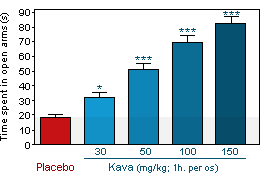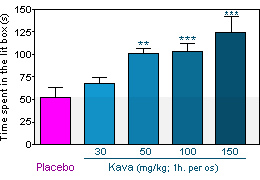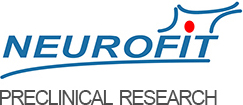Newsletter # 88

Animal models
Kava extract from Piper methysticum has been used in traditional medicine of pacific island countries to treat a range of health conditions, including
(1) DOI: 10.1097/00004714-200002000-00014
-
These CNS tests appear therefore relevant and predictive for evaluating neutraceutical concepts before advancing to clinical studies.
-


-
EPM and LD box are commonly used tests to evaluate the anxiety status of mice in one single trial. These tests are based on an approach/avoidance conflict between the drive to explore novel areas and an aversion to brightly lit, open spaces. Hence, increase in the time spent in these anxiogenic areas during the trial is an indication of potential anxiolytic effect of test compounds. Herein, a single 1h treatment of mice with Kava induces a dose-dependent increase in the time spent in the open arms and in the lit box suggesting a reduced anxiety status of mice.
Get in touch


 PREVIOUS
PREVIOUS